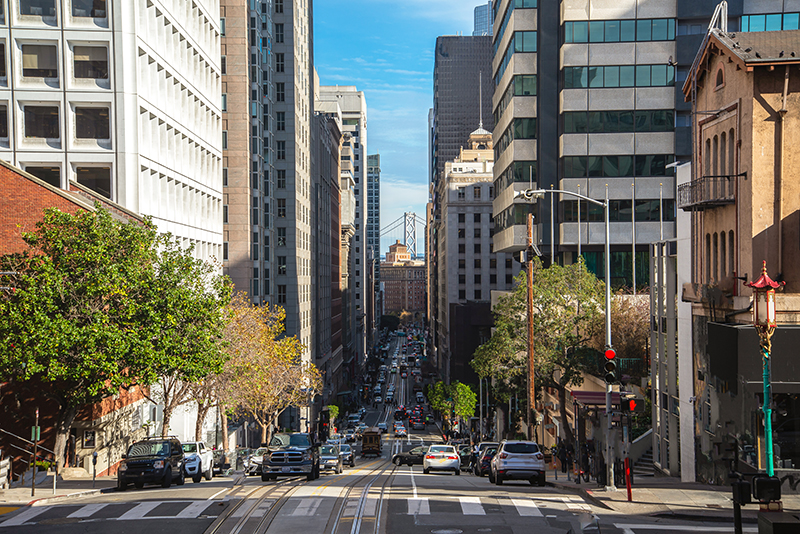San Francisco Mayor London Breed declared in her annual state of the city speech on Tuesday that the city’s downtown will not return to its pre-pandemic state. However, she reassured the public that this change will not hinder the overall economic recovery.
“Empty office buildings have led to predictions of economic doom and claims of the death of downtown,” said Breed. “But that’s okay.”
She compared the current situation to the state of downtown San Francisco after the 1906 earthquake, which was considerably worse, with most of the area being reduced to rubble and ash.
A recent study showed that downtown San Francisco had the weakest recovery from the pandemic among major U.S. cities, reaching only 31% of its activity level from the fall of 2019. Breed attributed the slow recovery to the high number of remote workers, with 46% of city employees working from home in 2021 compared to only 7% in 2019.
Revive Downtown San Francisco
To revive the struggling downtown, Breed plans to introduce legislation to modify the city’s tax structure and make it more attractive to businesses. The plan includes temporary pauses on tax increases for existing businesses and tax breaks for companies looking to open in the area. Additionally, the revival plan will prioritize arts and culture to enliven the streets.
Breed acknowledged that there is no one solution that will “save downtown,” but she emphasized that this is not the end for the city center. “This is a call to action, to reimagine our future, to think about the kind of city we are and can be,” she said.
Board of Supervisors President Aaron Peskin had a divided stance on Mayor London Breed’s revival plans for downtown San Francisco. He expressed support for the two-year delay in tax increases for businesses due to Prop. F and was receptive to the idea of granting tax breaks to new companies that move their offices to the city, but only for downtown.
Peskin said, “There’s no reason to make it harder for San Francisco to fund its streets, police and firefighters, and behavioral health issues if we are giving incentives to businesses that don’t need them.”
Supervisor Connie Chan, who chairs the board’s budget committee, stated that she was open to short-term strategies to boost the local economy, but was cautious about the impact of Breed’s specific plans on the city budget and the services it funds.
She expressed skepticism towards the tax reform ballot measure being considered by Breed and compared it to the controversial Twitter tax break from 2011, which allowed companies relocating to Mid-Market to avoid paying payroll tax for years.





